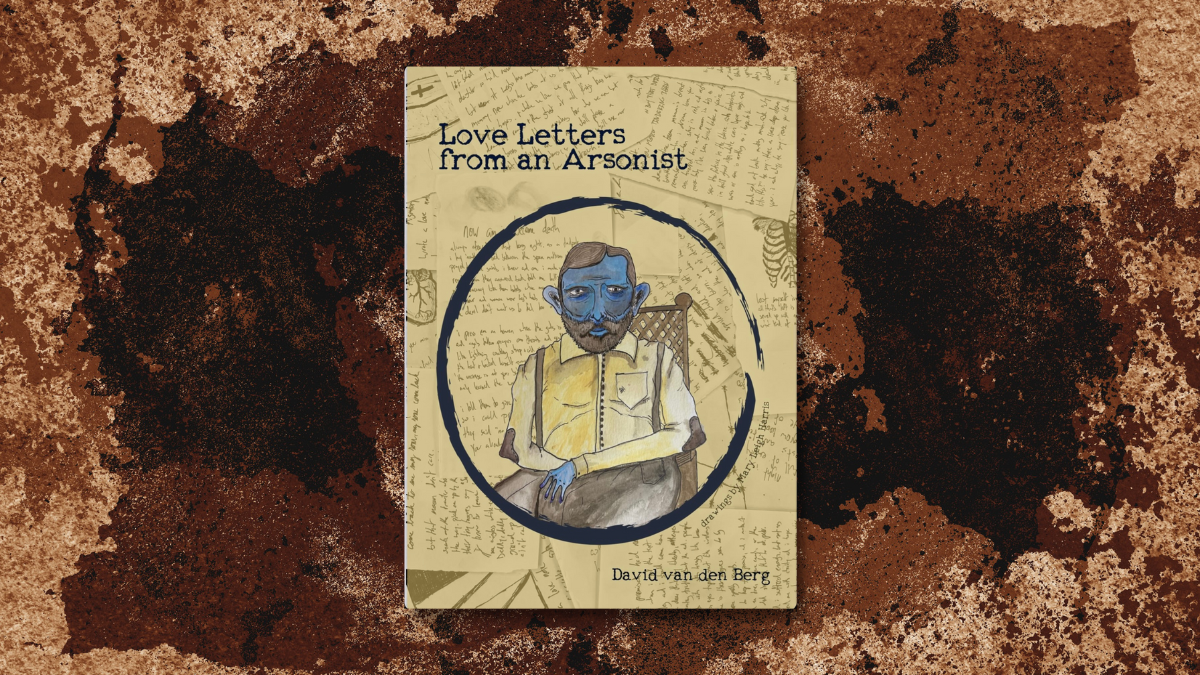
Love Letters from an Arsonist: A Haunting Journey of Hope and Darkness

Love Letters from an Arsonist
by David van den Berg
Genre: Poetry
ISBN: 9781953932174
Print Length: 100 pages
Publisher: April Gloaming Publishing
A dedication to the South; an indictment against corrupt ideas of god
“so next time you question why / the south is full of / lonesome / ghosts/ remember tall Hatuey / who burned alive and for his / trouble / now lives as a / brand of / cigars”
“Love Letters from an Arsonist” is a captivating collection that delves into the bleakness of the world while yearning for hope and optimism. Written by Berg, the poems are infused with ghosts, history, and personal experiences, exemplifying the haunting and rage often associated with the Southern Gothic genre.
“if my heart was a womb i’d sow it with salt and lye / so naught would grow but tumbleweeds”
Divided into three sections called Epistles, the collection opens with “Salt River Blues,” where readers are immersed in legends of Grandma Voodoo, Carcosa, and witches dwelling at the bottom of wells. The title poem, “love letters from an anarchist,” evokes the haunting tone of this first epistle. It depicts the speaker’s father setting himself ablaze, but not before spitting out what the speaker refers to as “pinecone sons.” These sons grow only in the presence of fire, suggesting that the children of this father will endure annihilation and emerge stronger as a result.
“still it feels good to worship God-in-the-Three-Piece-Suit on sundays when the rabbit ears pick up local public access broadcasts and preacher comes into the trailer with his teeth white as the lamb he eats to say that i can be rich like him if i give now.”
In “The Midnight Mass,” a biting letter is directed at false prophets and idols. This epistle harbors vengeance against millionaire televangelists and those who inflict harm in the name of “God.” The speaker questions the worth of God and heaven if innocent people must suffer and die on Earth. Thought-provoking choices, such as giving a poetic form to the Bible verse “James 5:1-6,” and portraying God as a simple man who hasn’t contemplated the consequences of his actions, heighten the intrigue and captivation of this section.
“so when the good book tells you that when the end of days comes we will perish in flames, don’t believe it, ‘cause fire is the heart of you and the world looks mighty dry to me.”
The final epistle, “Pinecone Son,” concludes the collection on a more hopeful note. The poem “Fly-United” portrays a man dancing with joy on an airplane upon learning of the Cleveland Cavaliers’ victory. The speaker is moved by this man’s genuine happiness and yearns to experience such emotions. This epistle captures a longing sentiment, albeit tinged with realism. While the subjects in Berg’s poems seem destined for their fates, it becomes apparent that the speaker desires more, craving a love that has been absent in their life.
“the ocean is deeper than the grave and / i fear drowning less than being alone.”
Berg’s writing is both lyrical and profound. The collection’s poems employ lowercase letters almost exclusively, creating an atmosphere where the speaker shares truths in hushed tones. While the adage “Without the darkness, we can’t truly appreciate the light” is often quoted, “Love Letters from an Arsonist” challenges the notion of valuing light at the expense of a torturous darkness.
“And if you have that light in you, i ask you now / share it just a little more often / for those like me who live in darkness / and spend our lives without”
“Love Letters from an Arsonist” captures the gritty and vulgar aspects of humanity, revealing their inherent beauty. Conversely, it scrutinizes the richness and beauty, exposing the corruption and hatred that can lurk within. The poetry bravely acknowledges the underlying sickness within our country and articulates its nature. I highly recommend this book to those seeking an authentic and unfiltered portrayal of the ghosts that haunt the Southern landscape. It is a compelling read that delves into the depths of our collective human experience.






